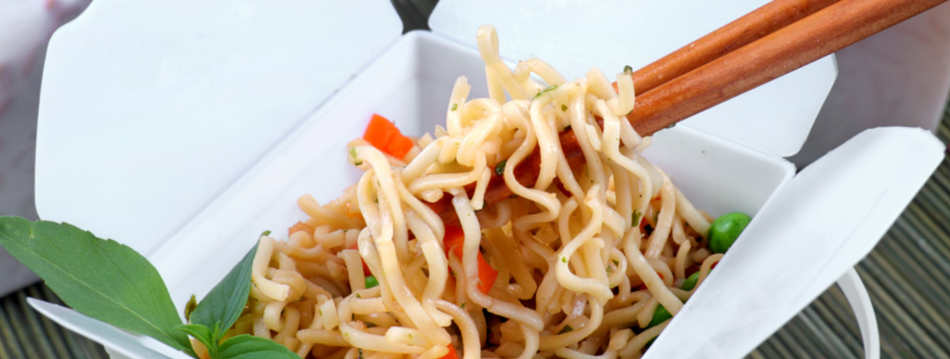.jpg)
Going to culinary school was one of the best things I’ve ever done, and I went at the perfect time in my life! For anyone who has ever thought about going I will offer this; culinary school doesn’t really teach you how to be a good cook, culinary school teaches you how to be a professional cook. I did learn how to prepare all kinds of regional cuisines, and lots of techniques, but the most valuable and long lasting lessons have been the ten I’m going to list for you.
- Mise en Place: This is probably the most valuable tool any cook, can use. Literally translated from French it means to put in place, and what it means in practice is to review your recipe, and gather all your ingredients, measured, and ready to use. It includes getting the pans and utensils you’ll need, and making sure your work area is clean and clear. I have lots of bowls in various sizes I use to set up my ‘mise’. Mise en place also includes mental preparation; reading through the recipes and directions, making sure you have enough time to go through all the steps; that you understand the techniques you’ll need. The great thing about using this type of preparation is that cooking becomes easier and more efficient, and clean up is easier as well.
- Work Clean: This doesn’t just mean making sure you’re starting out with a clean work area, but that you clean as you go; you wipe down or sanitize counters and boards as needed; you don’t cross contaminate by using a cutting board for raw meat, and then use that same cutting board for vegetables without properly washing it, and you wash your hands thoroughly and often.
- Work Neat: Roll up your sleeves; I recall one of my chef instructors talking to my friend Jen and saying “Roll up your sleeves; you look like a rookie”. Dragging your sleeves through anything is at best messy, and at worst dangerous. If you’re baking cookies, or laying out anything, use orderly rows; you will not have to keep stopping to count. Start at the farthest point when piping or scooping anything, like cookies, or biscuits; working closer and closer to yourself as you go.
- Work Safe: Keep cold food cold and hot food hot. Don’t put a knife or any blade into a sink filled with soapy water where it can’t be seen. Secure your cutting board with a damp paper towel so it doesn’t slide. Never use a damp towel as a pot holder, you can get a nasty steam burn, and always let someone know when you’ve got something hot in your hands, or if you are behind them.
- Take Care of Your Knives: Keep them sharp, you’re less likely to cut yourself with a sharp knife. For storage, use a good knife block, or a knife cover to protect the blade and yourself. Use the right knife for the task. Use a large enough knife for large items, and a small knife for small things. Never put a knife in the dishwasher!
- Taste as You Go: It is better to under season than over season, but it’s best to season right. If you’re making something like a meatloaf or meatball, make a small patty and cook and taste that to check for seasoning. Remember that chili peppers get hotter each time you cook them, so the spicy dish you had last night may be too hot the next day for lunch. Always use a tasting spoon, and don’t reuse it.
- Use the Best Ingredients You Can: If you use lousy products your food will taste lousy. Items that are in season will always be the least expensive, and the best tasting. You don’t have to use the most expensive cuts of meat to make a great dish, but don’t think you can substitute a chuck roast for a prime rib and get the same results. If you can it’s always best to make it yourself; the quality will be much better, and it will probably cost less too. Use whole foods, not processed. Canned vegetables (with very few exceptions) should be saved for war-time and floods.
- Know Your Inventory: Planning will keep you from needlessly throwing food away, or scrambling to put something together. Nothing is worse than planning to make a pecan pie because your mom says she has some pecans that need to get used, buying all the other ingredients, then finding out she really doesn’t have any pecans… (It could happen).
- FIFO: If you bring home something you already have in your fridge—juice or milk, or anything perishable, your people may be tempted to open the new item before the old is finished; do what grocery stores do, and make sure the oldest is in front of the newer stuff. It can also help to write in Sharpie (I love Sharpies) USE FIRST on the older item.
- Don’t cook above your skill level: If you are a beginner, start with simple things. Don’t plan an elaborate meal with many complicated components; you will stress yourself out, and not enjoy the experience at all, and you will probably work way to hard on a meal you won’t enjoy. If you’re set on making something difficult that is a challenge, plan to spend your time and energy on that one item, and make everything else simple and easy to prepare, or rally the troops and get a sous chef to help. When cooking really complicated items refer to #1 on this list, you will thank me, I promise!
HAPPY COOKING






.jpg)





Rhonda DiMercurio - Thanks Nancy! It was nice to read it. I do need to work on one or two of these, but I’m trying! 🙂
Hoda Khalil - Thank you, I needed this advise, it makes cooking much easier and more enjoyable!
Learning to Cook » Chefs Last Diet - […] The discipline and order I lack in most if my life I bring to the kitchen. I am dedicated to mise en place, I clean as I go and I plan and execute with almost military precision. Best of all, I continue to […]